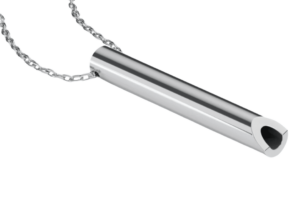
Completing a rehabilitation program is a significant accomplishment, but the journey to sobriety doesn’t end there. Transitioning back into everyday life after leaving rehab can be challenging, as you may face various triggers and stressors that can tempt you to relapse. Developing a comprehensive plan and utilizing effective strategies can help you maintain your sobriety and build a fulfilling, substance-free life. At Jagruti Rehabilitation Centre in Pune, we provide ongoing support and resources to help you stay sober after leaving rehab. Here are some essential tips on how to stay sober after leaving rehab.
1. Create a Structured Routine
Having a structured routine is vital for maintaining sobriety. A routine provides stability and reduces the risk of encountering idle time, which can lead to cravings and relapse. Plan your day with productive activities, including work, exercise, hobbies, and social interactions. Establishing a consistent sleep schedule and eating regular, nutritious meals can also support your overall well-being.
2. Identify and Avoid Triggers
Understanding and identifying your triggers is crucial for staying sober. Triggers can be people, places, or situations that remind you of your past substance use and create a desire to relapse. Common triggers include:
- Social settings where substances are present.
- Stressful situations or conflicts.
- Certain people who were part of your substance use.
- Environmental cues such as specific locations or objects associated with your
addiction.
Develop strategies to avoid or cope with these triggers, such as finding alternative activities, practicing stress management techniques, and surrounding yourself with supportive people.
3. Build a Support Network
A strong support network is essential for maintaining sobriety. Surround yourself with people who support your recovery and encourage positive behaviors. This can include family members, friends, support groups, and therapists. Joining support groups like Alcoholics Anonymous (AA) or Narcotics Anonymous (NA) can provide a sense of community and accountability. Regularly attending meetings can help you stay focused on your recovery goals and connect with others who understand your journey.
4. Continue Therapy and Counseling
Ongoing therapy and counseling are crucial components of long-term recovery. Therapy can help you address underlying issues that contributed to your addiction, develop coping strategies, and prevent relapse. Cognitive-behavioral therapy (CBT), dialectical behavior therapy (DBT), and other therapeutic approaches can be highly effective. Regular sessions with a counselor or therapist can provide ongoing support and guidance as you navigate the challenges of maintaining sobriety.
5. Practice Self-Care
Taking care of your physical, mental, and emotional well-being is vital for staying sober. Incorporate self-care practices into your daily routine, such as:
- Exercise: Regular physical activity can boost your mood, reduce stress, and improve overall health.
- Healthy eating: A balanced diet provides the nutrients your body needs to function properly and supports mental health.
- Mindfulness and meditation: These practices can help you manage stress, stay present, and maintain emotional balance.
- Hobbies and interests: Engaging in activities you enjoy can provide a sense of fulfillment and purpose, reducing the likelihood of relapse.
6. Set Realistic Goals
Setting realistic, achievable goals can help you stay motivated and focused on your recovery. These goals can be related to various aspects of your life, such as career, education, personal development, and relationships. Break larger goals into smaller, manageable steps and celebrate your progress along the way. Achieving these goals can boost your self-esteem and reinforce your commitment to sobriety.
7. Develop Healthy Coping Mechanisms
Learning healthy ways to cope with stress, anxiety, and other emotions is essential for maintaining sobriety. Some effective coping mechanisms include:
- Deep breathing exercises: These can help calm your mind and reduce stress.
- Journaling: Writing down your thoughts and feelings can provide an emotional outlet and help you gain insight into your experiences.
- Creative outlets: Engaging in creative activities like painting, writing, or playing music can be therapeutic and provide a positive distraction.
8. Avoid High-Risk Situations
Avoiding high-risk situations where you are likely to encounter substances or triggers is crucial. This includes social gatherings where alcohol or drugs are present, as well as environments that remind you of your past substance use. If you must attend an event where substances are present, have a plan in place, such as bringing a sober friend for support or having an exit strategy if you feel uncomfortable.
Staying sober after leaving rehab requires dedication, planning, and ongoing support. By creating a structured routine, identifying and avoiding triggers, building a strong support network, and practicing self-care, you can maintain your sobriety and lead a fulfilling, substance-free life. Remember that recovery is a continuous journey, and seeking help when needed is essential for long-term success. At Jagruti Rehab Centre in Pune, we offer the support and resources necessary to help you overcome challenges and achieve lasting sobriety. With commitment and the right strategies, you can overcome challenges and achieve lasting sobriety.



